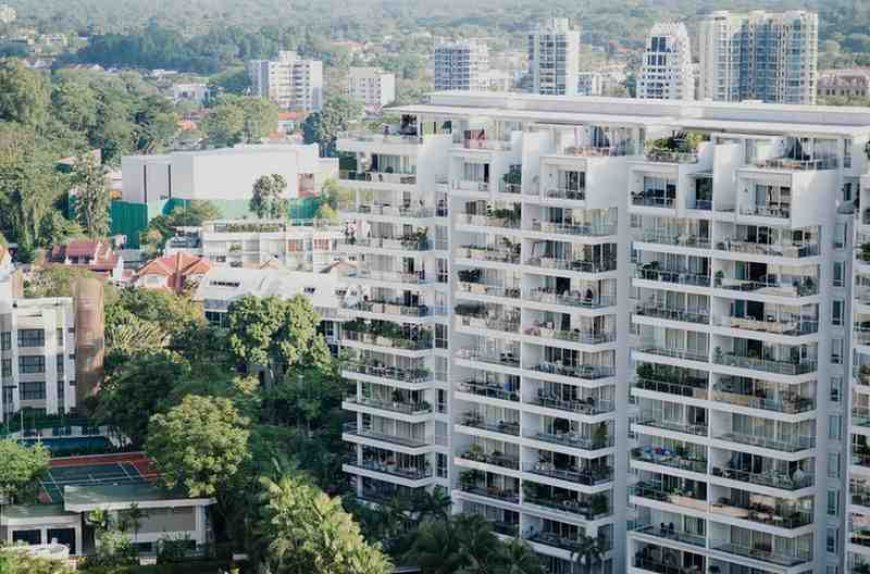How to Evaluate the Location Before Purchasing a Real Estate Property
Understanding how to evaluate a property's location is crucial before buying real estate. Learn key factors that influence the long-term value and livability of your investment.

When buying real estate, one golden rule stands out: location is everything. The location of a property doesnt just affect its priceit determines your quality of life, the potential for appreciation, and how easy it will be to resell or rent in the future. Even the most beautiful home can lose its charm if situated in a poor or inconvenient area. This blog will guide you through the most important factors to consider when evaluating the location of a property before making your purchase.
1. Safety and Crime Rates
Your safety and that of your family should always come first. A neighborhood's crime rate significantly influences its desirability and value. Areas with low crime rates often enjoy better school systems, more stable property values, and a stronger sense of community. Visit the neighborhood during different times of the day to get a sense of how safe it feels. Talk to locals if possible. Their input can be valuable in understanding the day-to-day safety of the area.
2. Proximity to Essential Services
One of the main advantages of a good location is access to daily necessities. Look for properties that are within reasonable distance to:
-
Grocery stores and supermarkets
-
Hospitals and clinics
-
Banks and ATMs
-
Schools and daycare centers
-
Police and fire stations
The closer and more accessible these services are, the more convenient your life will be, especially in emergencies or when managing a busy family routine.
3. Transportation and Connectivity
How connected is the property to major roads, highways, and public transportation? Good connectivity means shorter commute times and easier access to work, school, or recreational areas. Even if you own a car, being close to public transport adds value to your property. Its especially important in urban areas where traffic congestion is common. Look for bus stops, metro stations, and well-maintained roads in and around the neighborhood.
4. Neighborhood Profile and Community Vibe
Different neighborhoods cater to different lifestyles. Some are bustling with nightlife and entertainment options, while others are quiet and family-oriented. Visit the area at various times to observe the atmosphere. Is it noisy or peaceful? Are there parks, cafes, or walking trails nearby? Consider whether the neighborhoods character aligns with your personal or family needs. If you're buying for investment, think about the type of tenant or buyer the area would attract.
5. School District Quality
If you have children or plan to in the future, the quality of nearby schools will be a top priority. Even if you don't have children, properties near reputable schools often maintain higher values and attract more buyers. Research school rankings, extracurricular programs, and student-to-teacher ratios. High-performing schools are a sign of a well-supported and stable community.
6. Future Development Plans
A great location today may not remain so tomorrow, depending on upcoming developments. Check with local planning authorities or visit municipal websites to find out about future zoning changes, road expansions, commercial buildings, or other infrastructure plans. Projects like shopping malls, tech parks, or new transport links can significantly increase property values. On the other hand, upcoming factories or highways could lead to noise or pollution, decreasing the areas appeal.
7. Access to Employment Hubs
If you're buying a property for residential purposes, consider how close it is to employment centers. Shorter commute times increase your quality of life and can reduce stress. For investment purposes, properties near office parks, business districts, or industrial zones are in higher demand, especially among renters. This ensures better rental yields and lower vacancy rates.
8. Environmental Factors and Green Spaces
People are increasingly valuing open, green spaces. A location with parks, nature trails, and fresh air is more appealing than a concrete jungle. Also, consider the environmental risks such as flooding zones, earthquake-prone areas, or regions with frequent water shortages. These risks can affect both your safety and insurance premiums.
9. Market Trends and Property Appreciation
Evaluate how property values in the area have moved in the past 5 to 10 years. Consistent growth indicates a stable and appreciating neighborhood. If prices have been stagnant or volatile, understand why. Areas with good prospects for appreciation often show signs like new infrastructure projects, increasing population, and growing business activity.
10. Noise and Pollution Levels
Peace and tranquility can significantly affect your lifestyle. Check if the area is close to noisy highways, airports, factories, or nightlife zones. Consider also the air and water quality of the neighborhood. Excessive pollution can negatively affect your health and reduce the desirability of the location.
11. Amenities and Lifestyle Offerings
From gyms and cafes to cinemas and shopping centers, lifestyle amenities contribute to the overall desirability of a location. While theyre not essential for everyone, being close to entertainment and leisure activities often increases both comfort and property value.
12. Demographics and Cultural Fit
A good location should match your lifestyle, beliefs, and social needs. Some areas are more diverse and cosmopolitan, while others have a more close-knit, traditional community. Understanding the demographic makeup can help you decide if the area feels like a good fit. For investors, it helps in targeting the right audiencewhether young professionals, families, or retirees.
Conclusion
Choosing the right location is just as importantif not morethan the property itself. A good home in a bad location can lead to regrets, while a modest home in a great location can be a fantastic long-term investment. By carefully analyzing the safety, connectivity, future growth, and overall environment of the neighborhood, you can make a smarter, more informed decision. Always take your time to research and visit the area before committing. In real estate, location isn't just a factorit's the foundation of value.
Important Links
How En Bloc Sales Work in Singapore: A Guide for Condo Owners and Buyers
A Complete Guide to Real Estate in Singapore for Home Buyers and Investors
Understanding the Real Estate Market in Singapore
How to Start a Career in Real Estate with No Experience
Guide to Executive Condominiums (ECs) in Singapore: Are They Worth It in 2025
Thomson View En Bloc Condo Showflat



































